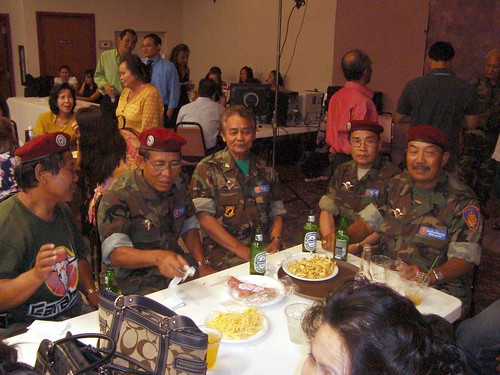There were approximately 60 questions and the kit was designed to help many of the veterans get their thoughts down on paper or recorded with the help of their friends and families. Maybe in the future I'll get a chance to refine it.

But in the meantime, while I'm getting that sorted out, here are some quick pointers. Most people suggest breaking interviews down into five areas, although you should really let the veterans talk about their experiences in the way they want to talk about it.
1) Basic details: When and were they born? Who are their parents, siblings and other memorable relatives? What were they doing before the war?
2) Early days: How did they get recruited? What was their training like? Did they get any special training? What was it like adapting to military life?
3) During the war: Where were they stationed? What kind of action did they witness, and what were their typical duties? Who became their friends? How did they stay in touch with their families? What did they do for recreation?
4) End of the war: Where were they when they heard the war ended? How was the readjustment to being a civilian? What has their contact with other veterans been like?
5) Other: What were the lessons they learned after all of this? What would they want to share with others?
Obviously, these are just beginning questions and as you learn more you should ask for more detail and clarification. You'll be surprised what you can learn! Remember: A good interview isn't done in a single day but is collected over several different sessions. Good luck!
1 comment:
Hi, Bryan. I thought you might be interested in a book written by a friend of mine. Her name is Laura Manivong. She collected the memories of her husband and his family from when they crossed the Mekong into Thailand and from their to America and made them into a YA book called "Escaping the Tiger." The review and an interview with Laura are on my blog.
Post a Comment